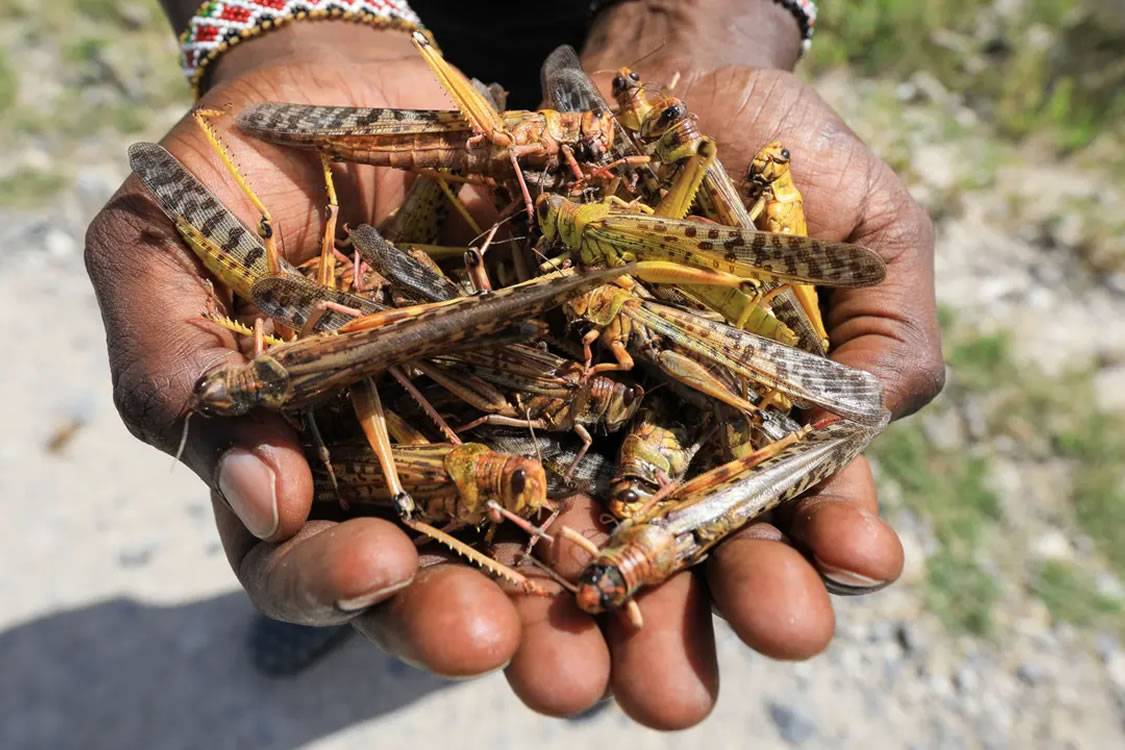The calima brings swarms of locusts to the Canary Islands from Africa
- 10-10-2023
- National
- Canarian Weekly
- Photo Credit: The Guardian / Wikipedia
The calima, which is the sandy wind from the Sahara during the heatwave, is bringing more than just suspended dust particles to the Canary Islands, as swarms of African locusts have been found in various parts of Tenerife, as reported by residents of Tacoronte in the northern part of the island.
Air quality indices in the Canary Islands indicate that conditions are "extremely unfavourable" due to the presence of this Saharan dust in areas of Lanzarote, Fuerteventura, the southern part of Gran Canaria, and Tenerife, owing to the strong influx of the calima from west Africa.
The term "African locust" can refer to several species of locusts found on the continent. Locusts are insects belonging to the order Orthoptera and the family Acrididae. They are known for their ability to swarm and undertake mass migrations, which can cause severe damage to crops and pastures.
Some of the well-known locust species in Africa include:
· Desert Locust: This species is famous for forming enormous swarms and devastating crop areas in Africa and other regions. It is also known as the "African migratory locust." Outbreaks of this locust can be devastating for agriculture.
· Western African Locust: Another locust species found in Africa, like the Desert Locust, can also swarm and cause damage to crops.
Other species: In addition to the ones mentioned above, there are many other species of locusts in Africa, some of which can cause significant damage to agriculture and vegetation if they become a plague.
Other articles that may interest you...
Trending
Most Read Articles
Featured Videos
TributoFest: Michael Buble promo 14.02.2026
- 30-01-2026
TEAs 2025 Highlights
- 17-11-2025



























































